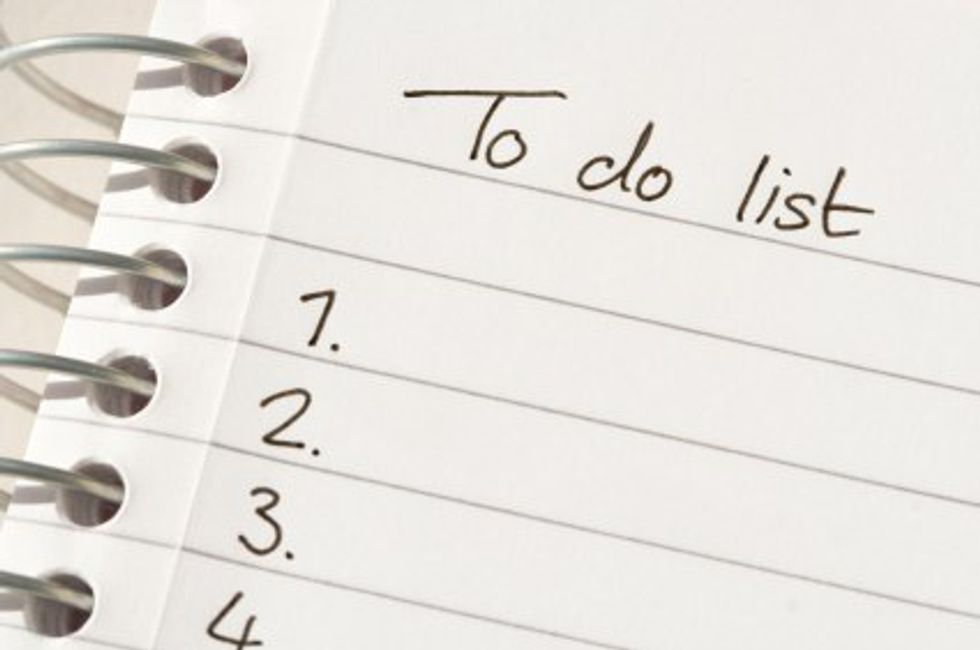When we come back to campus we get so sucked into our own personal time lines and agendas we often neglect those of the organizations we belong to. Or we zone in on one organization's needs and end up forgetting that we're involved in other things as well. To help maintain our own priorities as well as getting done what is expected of us, we should:
1. Make a list of what is due and when it's due.
Lists are helpful in allowing us to see everything we need to do in one space. Whether you're a fan of sticky notes on laptop backgrounds, the real kind, or even slips of paper torn off other papers, utilize whatever form of list-making material that will help you organize what needs to be accomplished. In addition to writing down what you need to finish or submit, it's also useful to write down a due date (if any). Those with the closest due date should be top priority. Anything without an official due date could be worked on once your tasks with due dates are completed.
2. Ask for extensions or help when necessary.
This is something very important that most college students learn during their four years. The sooner you learn this, the better. Life isn't about pushing ourselves to our limits and then going beyond that. It's about recognizing what we can do and using whatever resources possible to finish what's left. If you need an extension on something, ask if it's possible. If not, then make that TOP PRIORITY. Additionally, if you need help with something, don't hesitate to ask anyone. As long as you weren't specifically told to do something on your own, getting help is the way to go. Even if you just need help making sense of your thoughts and you end up completing the task on your own. Whatever form of help you need, be sure you listen to your own needs.
3. Pace yourself.
There's no need to start everything you need to do the night before they're all due. Pace yourself out and do a little bit of work at a time. If you know three things are due in a week and a half then start them early. Work on one, give yourself a break, then the other, another break, and then the last one. It may even work out that you have everything accomplished BEFORE the due date and then you get to rest some until you have your next assignment or task.
4. Recognize your own procrastination weaknesses.
And then use them to your advantage. For example, if you know Netflix or a good book is your weakness, give yourself a break every half hour to forty-five minutes to watch or read like ten to fifteen minutes of something that you want. Or if that does not work for you, then recognizing what is your weakness is the first step towards success. Once you know what to avoid when trying to accomplish your work, you know how to set up your work environment so that your distractions are not present. For example, if you need to put everything distracting in one room (or one side of the room) so that you can do your work in the other room (or on the other side), then do that. You could also head to the library if you need to, leaving behind what distracts you. One thing I find useful, is turning off my WiFi signal (through my computer) if I need to do work on it, but do not need the internet. It allows me to keep my own distractions under control while also using the device I need to accomplish my work.
This school year is what you make it. If you start off on the right foot, then you'll be headed to where you need to be.



































